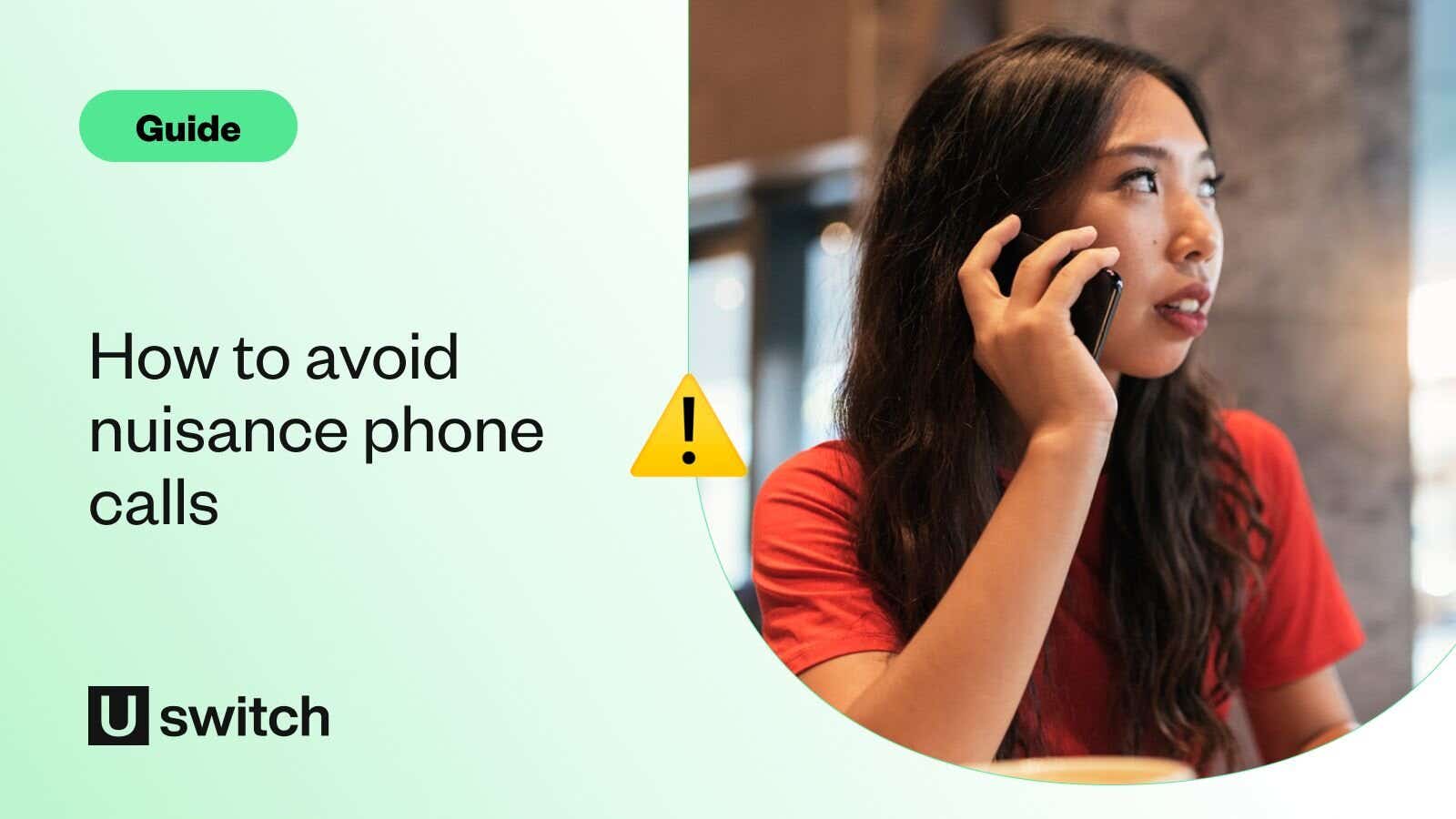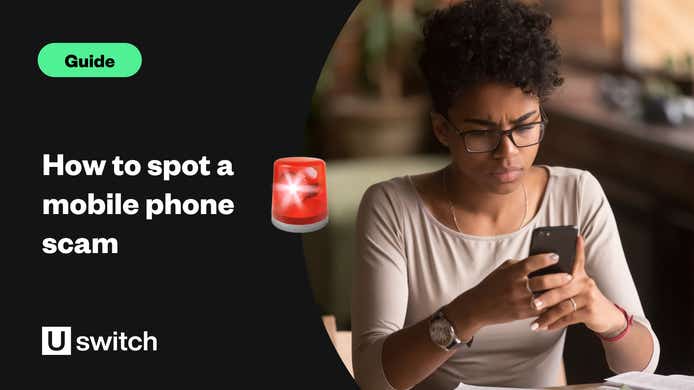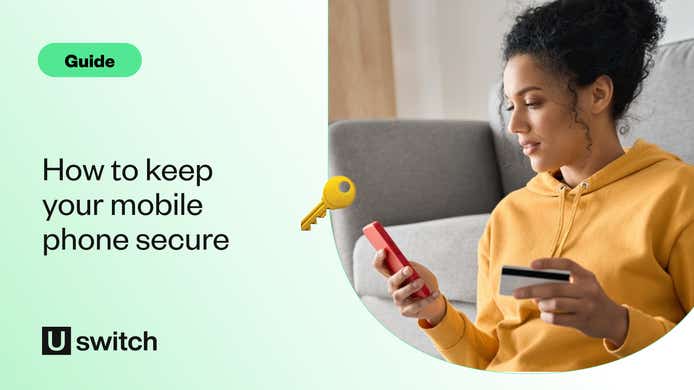Recent Uswitch research revealed that one in four (23%) 18 to 34-year-olds confess they never answer the phone these days, citing scam and spam calls as the top concern (63% of those surveyed).
Thankfully, there are several things you can do to block nuisance calls and texts:
Be careful who you give your details to
Prevention is always better than a cure, especially for nuisance calls.
Perhaps the best way to avoid unwanted calls is to carefully examine the checkboxes you're asked to tick when you buy something or sign up for a news email.
Sometimes ticking the box gives the service provider freedom to share your details with any number of other companies, who could then share your details again with even more telephone sales companies.
If you want to make absolutely sure you don't get these calls, you have to look very closely at the companies you'd be allowing to contact you. If the small print mentions 'trusted parties' or 'third parties', you're allowing the company to pass on your details at will.
How to stop nuisance calls on your mobile phone
Most of us will be used to getting junk calls on our mobiles. But as phishing scams become more sophisticated, it's a good idea to block nuisance calls before they have the chance to cost you any time or money.
Here are our top tips on how to do this:
1. Change the settings on your smartphone to stop junk calls
Whether you have an iPhone or an Android smartphone, you can block numbers through the settings on your phone.
iPhone
It’s easy to stop persistent nuisance callers on all current iPhones. Just find the number you want to block from your list of recent callers. Hit the ‘i’ symbol beside it and select ‘Block this caller’ to stop this number from calling or texting you.
You can manage blocked numbers by going to your phone settings and choosing the Phone option. You'll then be able to click on a list of blocked numbers on your iPhone.
Android
Android users can block numbers in the call log. Simply select the number of the nuisance caller and hit the ‘More’ or '3 dots' symbol in the top right-hand corner of the screen.
You'll then be able to add the number to your reject list, which should stop the nuisance calls and texts.
Alternatively, you'll see an option to block a number when you hang up.
2. Stop spam text messages
In addition to nuisance calls, companies are increasingly sending junk texts in the hope of getting a response.
Although they may seem equally annoying, there’s a big difference between spam and legitimate marketing texts.
Marketing texts from reputable companies are usually sent to customers who have opted in to receive promotional information.
It’s possible you signed up for this by accident and can easily unsubscribe on the company’s official website. Alternatively, a lot of companies will give you the option of unsubscribing by texting the word STOP.
Whatever you do, don’t reply or text back even with STOP. That will confirm that your number is in use, so they will keep spamming you. They could also sell your number to injury claim specialists, PPI firms, or other companies that may bombard you with unsolicited calls and texts. Make sure you don't click on any links within the text, either.
You can report spam messages to 7726, which spells out SPAM on traditional mobile phone pads.
If caught, spammers can face hefty fines, although they change their details so regularly that very few are ever caught.
You can help limit the number of spam texts you get by only giving out your mobile number when absolutely necessary, using a landline number where possible, and not listing your number online.
There are also apps you can download that will block spam numbers from messaging you.
3. Download an app to block and manage nuisance numbers
While you can block individual numbers in your phone settings, there are plenty of free apps out there that will give you more control over who contacts you.
Here are some of our favourites:
Hiya
Formerly known as Whitepages, Hiya identifies more than 400 million nuisance calls every month. The app is easy to use and helps you identify the calls you want to pick up while automatically blocking the ones you want to avoid.
Hiya compares incoming calls and texts from unknown numbers with the app’s vast database. The information about the number will then show alongside the incoming call or message, so you can choose whether or not to accept the phone call.
Hiya will also check the content of texts for any malware and viruses to help keep your device safe. You can download Hiya on the Google Play Store or Apple's App Store.
Mr Number
Mr Number is a straightforward call blocker that can pinpoint and block specific numbers, as well as block calls based on area codes.
You can block individual numbers, all unknown contacts, or all phone numbers beginning with certain digits, such as all 0800 numbers. To download the Mr Number app, you can go to the Google Play Store or Apple's App Store.
Truecaller
Truecaller uses a large, community-powered spam list created by the combined effort of more than 200 million users from all around the world.
This means the app has a match for nearly any number, so it can almost always tell you who’s calling.
You can also search through Truecaller’s extensive database, so if you’re getting nuisance calls on your home phone, you can use the app to check which company keeps bugging you.
You can get Truecaller on your iPhone or Android phone.
YouMail Visual Voicemail
Most solutions to nuisance numbers will still allow blocked numbers to leave you a voicemail.
If you’re getting constantly harassed, YouMail Visual Voicemail might be a good way to go. It lets you permanently block numbers, preventing them from contacting you in any way.
It will even inform nuisance callers that your number is no longer in service. This will get your name permanently removed from telemarketers’ call lists. You can download the app onto your Android or iPhone.
How to stop nuisance calls on your landline
Here are some of our top tips:
1. Get in touch with the Telephone Preference Service (TPS)
This is a completely free service that allows you to opt out of unsolicited calls entirely — on paper, at least. In practice, unwanted calls still find a way through. But it's still a smart step to take.
To register your mobile or landline number, call 0845 070 0707. Alternatively, from a mobile, text "TPS" and your e-mail address to 78070. You'll know you've been successful in signing up if you receive a text reply from TPS.
There may be a charge for the text on some networks; however, for most users, the text should be included within their bundle.
The bar takes 28 days to come into effect, so you won't see an immediate reduction in calls. Find out more here: Telephone Preference Service.
2. Consider BT's Nuisance Call Blocker phones
BT sells home phones that feature nuisance call-blocking technology, which can shield users from up to 100% of unwanted calls. As well as calls from international and withheld numbers, it allows you to bar unknown callers, too. Keep in mind this claim is 'up to', which means it isn't guaranteed to block all nuisance calls. Still, it can help cut down on unwanted calls if you use the correct settings.
3. Use your telephone provider's anti-nuisance call measures
Many providers now go the extra mile to clamp down on unsolicited calls.
TalkTalk's free Last Caller Barring feature lets you block the last number that called you or input numbers that you'd like barred.
BT's Caller Display option, which costs just shy of £2 per month, is also useful. This lets you see the number of the person who's calling you so you can decide whether to take the call.
Virgin Media operates a special Nuisance Calls Bureau that gives helpful advice on tackling unsolicited calls. You can reach them on 0800 953 3333.
4. Go ex-directory
Although being removed from the phone book used to be something only the upper crust would consider, it's now a fairly standard way for people to avoid getting harassed by nuisance calls, going ex-directory is a very sensible thing to do. At the very least it will enable fewer telesales companies from getting hold of your number.
5. Ask where they got your number
Sometimes, if you're lucky, the rep will tell you how they got the number. From that, you may be able to work out why you're being bothered with calls and take steps to put a stop to it.
6. Register the number and make a complaint
The next time you get a nuisance call, take note of the time of the call, the company and the number. If you’re not sure of this use 1471. You can then use these to lodge a complaint with the telecoms regulator Ofcom.
What is Ofcom doing to help stop nuisance calls?
Scam calls have been on the rise over the last few months. With people more vulnerable due to the impacts of Coronavirus, scammers are taking advantage and targeting people with new scams.
UK communications regulator Ofcom has joined forces with the Information Commissioner’s Office (ICO) to create a new plan to tackle scam and nuisance calls in 2021/2022.
The ICO is responsible for dealing with marketing calls, emails and nuisance text messages. It will take action against companies that are found to be in breach of rules relating to nuisance communication.
Ofcom will tackle silent callers and abandoned phone calls as well as offer general advice to consumers and work with the ICO, phone networks and other companies to keep on top of the problem.
Ofcom and the ICO have set out five areas that they will focus on to tackle nuisance calls:
- Target organisations and people that are in breach of Ofcom and ICO rules
- Raise awareness of telephone scams including Coronavirus scams with the help of Stop Scams UK
- Collaborate with networks and telecoms organisations to establish action plans to stop nuisance calls
- Reach out to more enforcement agencies and regulators to create new systems that will tackle scams and nuisance phone calls
- Share intelligence regarding scam calls with other enforcement organisations both im the UK and abroad
Ofcom and the ICO have pledged to update the public on their progress with these action points in 2022, as well as continue to publish awareness and advice for people who wish to protect themselves from and also report scan and nuisance calls.
Nick Baker, telecoms expert at Uswitch.com, said: “Scam texts have exploded. Millions of us have received messages claiming to be from the tax authorities, parcel delivery firms and even the NHS.
“Many of these messages are cleverly disguised, but clicking on the links can result in your data or even your money being stolen.
“The volume of nuisance calls on landlines has increased in the same period too - in fact one in five landline customers have told us they avoid answering their phone in case it’s a scammer.
“Surprisingly, more people told us they received suspicious calls on their landline than they did on their mobile phones.
“If you’re struggling with scam calls on your landline, make sure you have registered for the Telephone Preference Service, which should reduce the amount of sales and marketing calls you receive. If you suspect you’re being targeted by a scammer, hang up immediately.
“Never give out personal details on the phone unless you’re 100% confident that you’re talking to an official caller, and be just as suspicious of links in texts and emails.”




